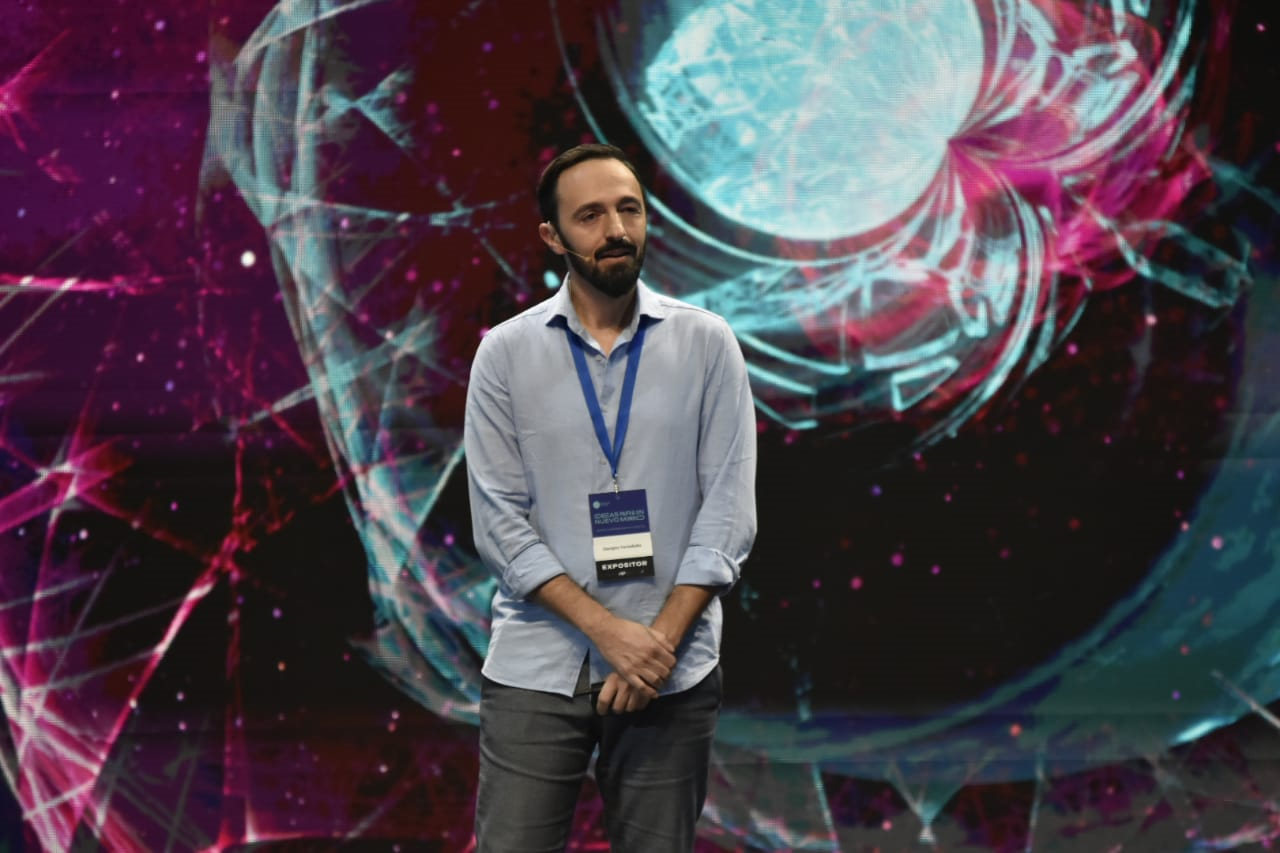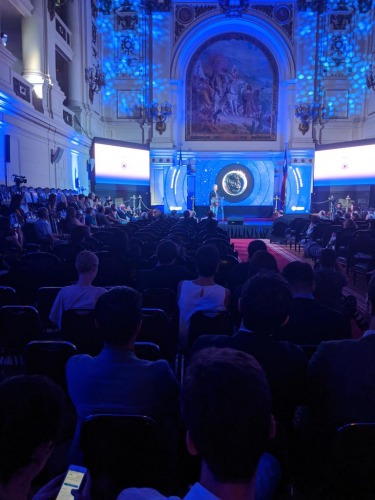
Games as AI Revolutions


Prof. Yannakakis, Director of the Institute of Digital Games spoke alongside Frances Arnold, Chemistry Nobel Prize Winner 2018, Mary Robinson, former President of Ireland, and Katherine Maher, CEO of Wikimedia among another 80 prominent speakers in their fields at Congreso Futuro in Chile. Congreso Futuro is the largest TEDx-style conference in Latin America and as prominent artificial intelligence research, he was invited to present on "Games as AI Revolutions". Yannakakis spoke, on the one hand, about the revolution of games and their impact to our society and our culture and, on the other hand, about the current technological revolution of AI.
The Future of AI in Videogames
He emphasised on the very fact that AI has been advancing through games since its birth and that AI defines the next revolution of games. Despite the popular belief that AI only plays games, there are far more interesting and challenging problems for AI to solve within games: these include the design of entirely new games and the understanding of player experience. AI can make environments that will challenge it and advance even further in a symbiotic relationship with the content itself.
Congreso Futuro Fora for the Discussion of the Evolution of Science and Technology
Congreso Futuro is considered one of the most important fora for the dissemination of science and technology in the Southern Hemisphere and particularly valued by the scientific community for addressing topics crucial to development that require in-depth discussion on a societal level.

Teaching How AI Algorithms Function using Games
Prof. Yannakakis is also coordinating the LearnML Project which aims to teach children the core principles of Artificial Intelligence and Machine Learning through a uniquely designed game-based educational toolbox.
The project aims to produce an innovative solution for the teaching and learning of crucial 21st century skills relating to digital literacy, computational thinking, Artificial Intelligence (AI) and Machine Learning (ML), so that Europe’s children and teenagers can develop into responsible citizens and insightful thinkers able to navigate the complex digital space and effectively contribute to its design.
A number of internationally established researchers and educators from partners in the project from Malta (Science Centre Pembroke Malta - Faculty of ICT - University of Malta) , Norway (NTNU - Norwegian University of Science and Technology) and Greece (Palladio School - National Technical University of Athens) will also talk about game-based learning, computational thinking, ethics of AI, and the didactics of AI training in primary and secondary education.
Here Prof. Georgios Yannakakis, Director of the Institute explains the early-stage prototype and visualisation using Minecraft to understand the influence of the size of neural network and time spent training on an artificial agent.
Microsoft's interest in the project was piqued after Prof. Georgios Yannakakis had presented his research at Microsoft Research Cambridge earlier this year.
Artificial Intelligence in Games Research Group
The AI research group at the Institute of Digital Games is performing cutting edge research at the crossroads of AI and games pushing the boundaries of the field with innovate work being published in top-tier journals and conferences. In addition to academic research supported by European and national funding, the Institute’s AI research group also collaborates actively with industry giants such as Ubisoft.
Researchers of the AI research group have had their work awarded at numerous conferences and competitions in the field of computer science, particularly as relates to: artificial intelligence, machine learning, affective computing, creative computing, and player modelling.
To stay up to date with more of the work done at the Institute subscribe to the Newsletter below:

